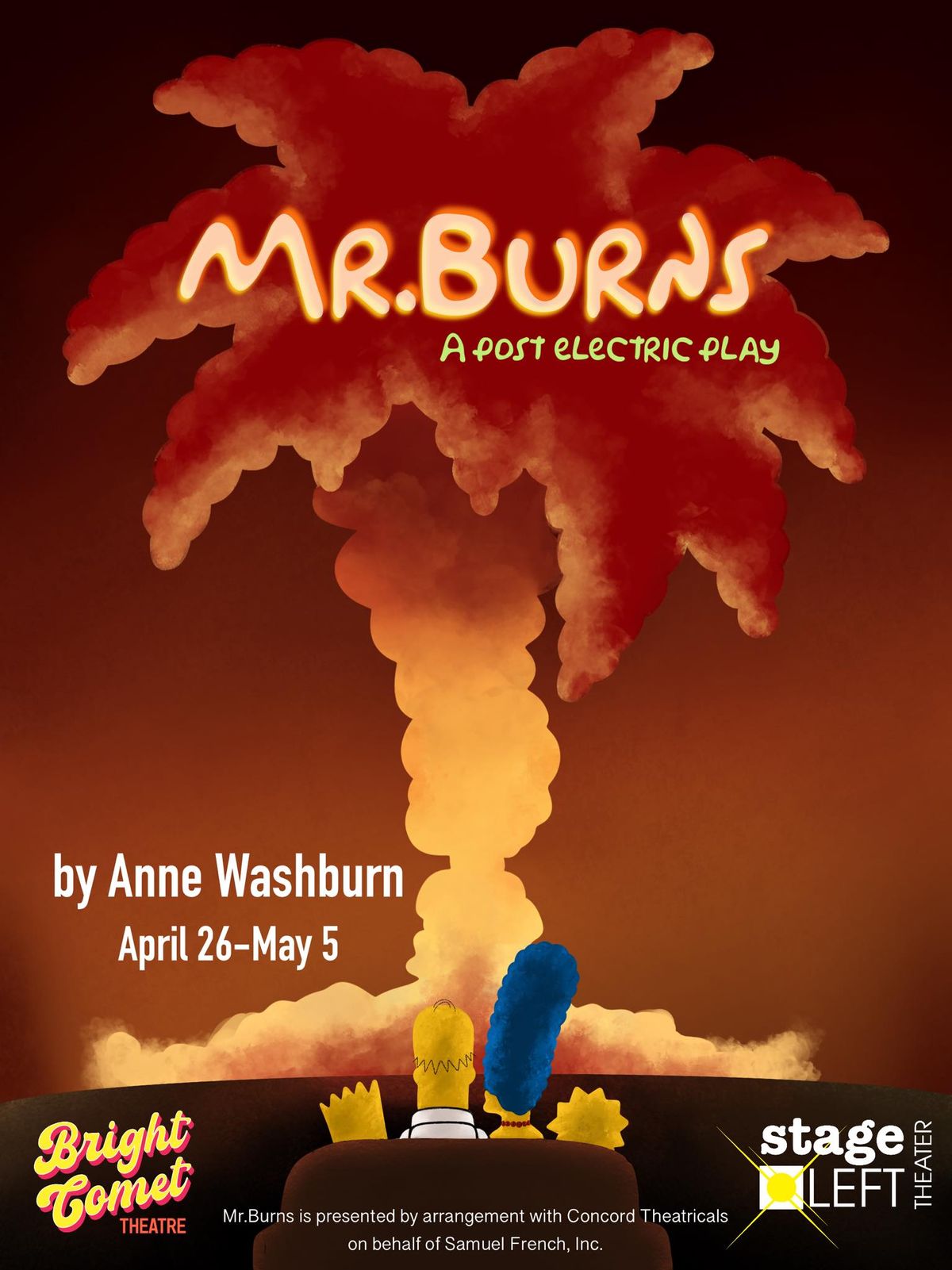Bright Comet Theatre’s ‘Mr. Burns’ is a charmingly weird spin on a post-apocalyptic world

The apocalypse has destroyed the world.
Nuclear plants have gone off across the country, destroying communication systems and decimating the population. The electric power grid no longer works.
A group of grief-stricken survivors gather around a campfire where they seek comfort from something constant and familiar: “The Simpsons.”
Anne Washburn’s post-electric play “Mr. Burns” explores this apocalyptic world and humanity’s last stand to find joy within it through fragmented memories of the popular animated show.
“It’s really neat, but really weird,” said Dominique Betts, director of Bright Comet Theatre’s production of “Mr. Burns.”
Act 1 of the play explores the immediate aftermath of the world’s meltdown, with the group of survivors trying to remember an episode of “The Simpsons,” both to distract from their grief and to hang on to a thread of the digital world they lost.
“It shows how dependent on electricity we all are,” Betts said. “Instead of reading books that are leftover, they are searching for entertainment from electricity.”
Seven years later, in Act 2, the survivors have formed a traveling theater company that performs the same episode of “The Simpsons” to a world starved of entertainment.
“If the world wasn’t so orderly, what would we do and how would we respond?” said cast member Matt Slater, who also performed in Stage Left’s nationally award-winning production of “Pass Over.”
Betts said a major theme of the play is that life goes on and time passes, even in adverse circumstances. A new character is introduced in Act 2, she said, representing the turnover of traditions through generations and the comings and goings of people into each other’s lives.
“It’s very relatable in both the good and bad,” she said. “The dichotomy flips in a minute, and it’s so beautiful.”
Cast member Kezia Rhodes, who plays Quincy and Bart, said “Mr. Burns” allows the audience to see societal shifts play out over the course of decades.
“This is a show that follows a culture as the people lament and find ways to move on,” she said.
The story also acts as a reminder to cherish the time people do have with their loved ones, Betts said, while also providing commentary on the importance of entertainment and media.
Many people debate whether “good” stories must include deep meanings and themes, but “Mr. Burns” shows that lighthearted stories, like “The Simpsons,” provide a level of happy escapism that helps people survive in bad times, Betts said.
“ ‘The Simpsons’ is what comforts people,” said Slater, who plays Sam and Mr. Burns. “It’s a shared memory of before things went bad.”
In Act 3, the final act of the show, 85 years have passed since the apocalypse. People perform the same episode of “The Simpsons” with such intense fervor, the people’s obsession with the last remnant of the digital world is cult-like.
“It is a lot like Greek mythology,” Rhodes said of Act 3’s “nouveau opera” performance of “The Simpsons” episode. “It is a high drama, operatic work of art that reflects their society’s origins.”
Humanity in Act 3 uses the episode of “The Simpsons” to explain the unexplained elements of the apocalypse, Rhodes said. Characters in Act 1 argue over the precise events that lead up to the electrical grid going down, so the operatic performance 85 years later has warped elements of fires and nuclear weapons destroying the world.
Slater, who plays Sam and Mr. Burns, said the story of “The Simpsons” spiraling out of control over the decades shows how memories warp over time and how people experience life differently. But in the same vein, it also shows that simple joys can bring humanity back together.
“We definitely leaned into the cult aspect,” Betts said. “It is a bit on the nose about how ‘The Simpsons’ has a cult following, but it’s also about how media lasts so long and brings people together.”
Betts said she encourages people to see the play to have a fun, weird time with the bizarre story.
“The core message is sharing stories to unify each other,” Betts said. “The stories we tell live on.”